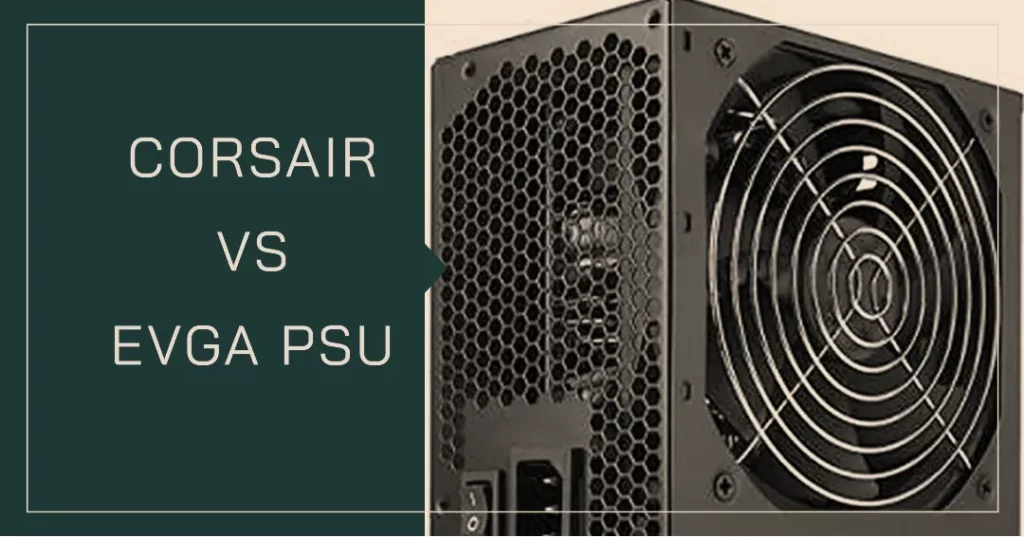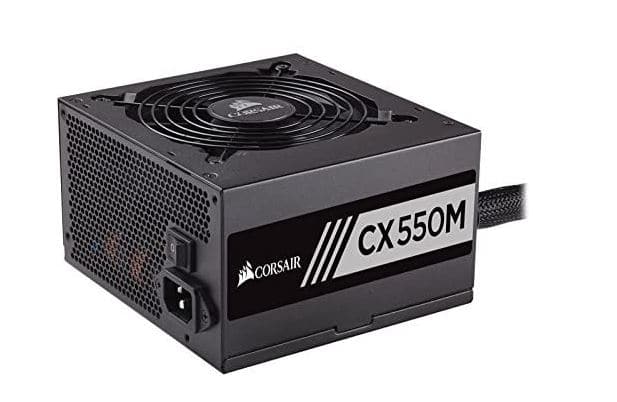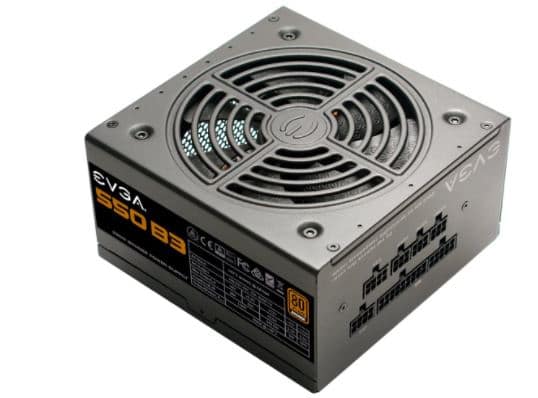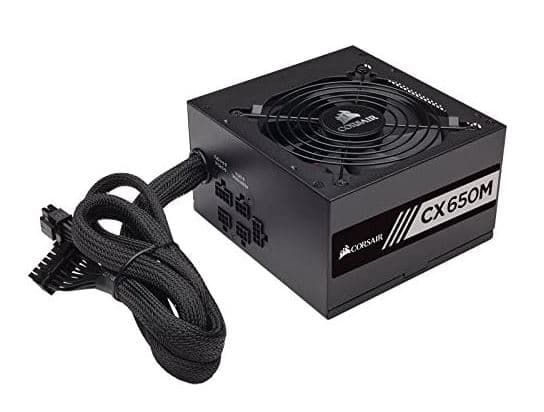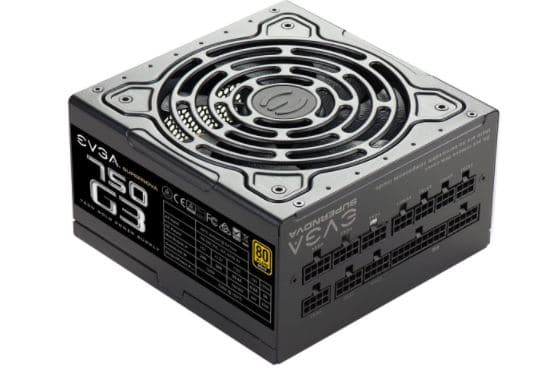When building a robust and reliable computer system, one of the most critical components to consider is the power supply unit (PSU).
A high-quality PSU ensures stable power delivery and safeguards your valuable hardware from potential damage.
In the realm of top-tier PSU manufacturers, Corsair and EVGA stand out as frontrunners, revered for their exceptional performance and cutting-edge technologies.
In this article, we delve into the Corsair vs EVGA PSU battle, pitting these industry titans against each other to help you decide when choosing the ideal power supply for your needs.
We will explore the key features, efficiency ratings, design considerations, and customer feedback, enabling you to decipher which brand is on top.
So, whether you’re a passionate gamer seeking unwavering power for your high-end rig or a professional looking to build a reliable workstation, read on as we unravel the competition between Corsair and EVGA and guide you toward the ultimate PSU that caters to your requirements.
Let’s embark on this electrifying journey and discover which powerhouse reigns supreme in the Corsair vs EVGA PSU showdown!
Corsair vs Evga PSU: Which PSU Brand is Better?
Here’s a table comparing Corsair and EVGA power supply units (PSUs):-
| Features/Factors | Corsair | EVGA |
|---|---|---|
| Efficiency | Corsair PSUs are known for their high-efficiency ratings and have 80 Plus certification for Bronze, Gold, Platinum, and Titanium levels. | EVGA PSUs are known for their high-efficiency ratings and have 80 Plus certification for Bronze, Gold, and Platinum levels. |
| Power Output | Depending on the model, Corsair PSUs offer a wide range of power output options, from 450W to 1600W. | EVGA PSUs also offer a wide range of power output options, from 450W to 2200W, depending on the model. |
| Warranty | Corsair PSUs come with a 7-year warranty for most models. | EVGA PSUs come with a 10-year warranty for most models. |
| Modular Cables | Corsair offers modular and semi-modular PSU models, allowing users to connect only the cables they need for their system. | EVGA offers modular and semi-modular PSU models, allowing users to connect only the cables they need for their system. |
| Price | Depending on the model and features, Corsair PSUs are generally priced mid-range to high-end. | Depending on the model and features, EVGA PSUs are generally priced mid-range to high-end. |
| Fan Size | Corsair PSUs use 120mm fans for cooling. | EVGA PSUs use both 120mm and 140mm fans for cooling, depending on the model. |
| RGB Lighting | Corsair offers RGB lighting on higher-end PSU models, like the RMi and RMx series. | EVGA offers RGB lighting on higher-end PSU models, like the Supernova G5 and G6 series. |
| Form Factor | Corsair offers both ATX and SFX form factors for its PSUs. | EVGA offers both ATX and SFX form factors for its PSUs. |
| Noise | Corsair PSUs are known for their quiet operation and have low noise levels, even under load. | EVGA PSUs are also known for their quiet operation and have low noise levels, even under load. |
Now Let’s deep dive😎
Efficiency
All devices which run on electricity tend to lose a certain amount of their power input while functioning.
For example, if a PSU is 80% efficient, the energy extracted from the PSU is 80% useful, whereas the other 20% is wasted. This inadequate power supply affects the PC’s functioning and might harm its internal parts.
The loss of power due to inefficiency is given off as heat. More heat in your PC causes the fan speed to increase to expel the hot air.
If the heat increases further, your computer might face stability issues. Also, much electricity is required if you use the PC for long hours or 24/7, and an inefficient PSU can increase your power bill.
Thankfully, the PSUs are becoming more efficient at lesser prices. All good PSUs are given a rating based on their performance based on 80+ standards.
As the name suggests, a PSU has to be more than 80% efficient to get evaluated through this rating system. The different levels of rating are as follows:
- 80+ White: 80% efficient
- 80+ Bronze: 85% efficient
- 80+ Silver: 88% efficient
- 80+ Gold: 90 % efficient
- 80+ Platinum: 92% efficient
- 80+ Titanium: 94% efficient
If you are a person who is starting to use a computer and can be considered a beginner, then the best option for you is 80+ bronze and not less than that.
These are enough to handle the functioning of your computer. The price difference between white and bronze is minimal, which can get squared off with the electricity savings through the bronze.
Corsair and Evga offer 80+ gold efficiency PSUs to their customers. The 80+ gold units manufactured by these two companies are so competent that they don’t need a fan when normal web browsing is done.
If we consider both in the context of Corsair vs Evga PSU, then both companies are good in inefficiency.
Using platinum or titanium PSU can be a little costlier, but their performance makes the devices value for money.
So if you are a heavy user, you can consider buying these PSUs with 80+ platinum or titanium efficiency.
Non-Modular, Semi-Modular, and Fully Modular
Modular is termed as the number of cables that are used to connect the PSU to the computer. Your cabling depends on your budget or how much you can spend. There are three types of modular from which a person can choose:
Non-Modular
The power supplies get transferred through a bundle of hard-wired cables to the device, which generates power.
This cabling saves a lot of money; thus, most PSUs use non-modular cabling. But some disadvantages come with this type of cabling:-
- Cables not getting used remain inside your PC and use a lot of space.
- Extra cables can affect the airflow by coming in their way.
- The cables that are in the bundle have a fixed length.
- It is necessary to disconnect every component to remove the PSU. This is a time taking the job.
These issues can get ignored if the user is ok with spending more on the cables.
Semi-Modular
They are $10-$20 costlier than non-modular cabling, but with this small difference in price, they bring a massive difference in a PC’s cable management.
Only the main 24-pin ATX power connector is hard-wired because the motherboard requires this for adequate functioning. Besides that, every cable in Corsair and Evga semi-modular PSUs is optional.
Persons using M.2 SSD only and no other drives can skip the usage of SATA cables. Computers with a single GPU system can opt out of the PCIe cable, which was meant for SLI and Crossfire setups.
By reducing cables in your PC, you can create more space for proper airflow inside the PC, and a computer with fewer cables looks attractive and good. In Corsair vs Evga PSU context, both companies produce quite similar semi-modular PSUs.
Fully Modular
The high-end and costly PSUs are fully modular, meaning every PC cable is removable, including the 24-pin ATX.
This type of PSU is very expensive, so upgrading from semi-modular to fully modular to remove the cable of the 24-pin ATX is not advisable in certain cases.
But lastly, it depends upon each individual’s choices and needs. There are some benefits that you will get if you choose to use fully modular PSUs:
- The PSU can easily get removed from the PC for cleaning and maintenance without rerouting the cables.
- A person can substitute a longer or shorter 24-pin ATX cable.
- It is easy to make custom-sleeved cables, and it is easier to purchase them.
It wholly depends upon the user’s choice on whether he/she wants a semi-modular or fully modular PSU in the PC.
Side-by-Side Comparisons:-
Now that we have understood different aspects of a PSU let’s compare the PSU of Corsair and Evga to give you an idea on which company manufactures better products than the other.
This will help to provide you with an overview of the context of Corsair vs Evga PSU.
Corsair CX550M VS EVGA 550 B3
PSU with a power supply of 550w can be a good option for an average PC used for regular use. Such PSU is compatible with PCs that have the following features:
- The graphic cards used are low-range or mid-range. These are incapable of performing advanced operations.
- Air cooling feature to keep the temperature of the PC balanced.
- A minimal amount of overclocking.
- It runs a few times daily, so this PC is rarely used.
Let’s discuss more Corsair vs Evga PSU on the 550w segment:
Power and Efficiency:-
Both models can generate an output of 550w. The generation of power is continuous in both products. Both companies provided a single rail 12v power output in both products at 45.8 A. Both the PSU have acquired an 80+ Bronze rating.
So, according to the above explanation, it is clear that both the products are quite similar in terms of power and efficiency.
Features:-
The CX550M has semi-modular cabling, meaning the 12v ATX cable is hardwired to the PC. Whereas in the case of 550B3, the cabling is fully modular, meaning there is no hard-wired cable connected, not even an ATX cable.
As the 550B3 PSU has fully modular cabling, changing the ATX cable with a short, long, or custom-sleeved cable is possible.
In 550B3, the connections that are still not connected can be divided into five modular cables. Whereas in CX550M, these connections are divided into four modular cables. This division into four modular cables can help in routing to SATA drives.
Another feature that gives the 550B3 an edge over CX550M is Evga’s eco mode. To enable this feature, a person can switch the button on the back of the device. This allows and helps the PSU to perform silently.
You can read these points and select which 550w PSU is better for you and your computer.
Value:-
The CX550 can cost you a little less than 550B3. So if you don’t want the eco mode, CX550 is a good choice. But the features in 550B3 are no less. So the user must decide this considering his/her requirements.
Check the Price of CX550M on Amazon
Check the Price of 550B3 on Amazon
Corsair CX650M VS EVGA 650 BQ
PSUs that generate a power supply of approximately 650w are good for gaming PCs. They are capable of supporting high-end graphics, which is a must-required component for a gaming PC. They also allow for some overclocking.
Before purchasing a 650w PSU, the user needs to know the features of a PC to handle and function a 650w PSU. Therefore the features of the PC are as follows:
- The PC must have a high-end graphics card. Mid-end graphics cards are also manageable.
- An air cooling system is mandatory, or an All-in-one liquid cooler can be enough.
- The overclocking should be done mildly.
- PC with a 650w PSU compatibility must run a few hours a day and take some rest the other times.
Let’s discuss more points in the context of Corsair vs Evga PSU in the 650 segments:-
Power and Efficiency:-
Both the company’s products can generate power up to the limit of 650w. Both the products generate power without any peak, which is considered good and efficient.
Both the products generate 12v rail output at 54A. The efficiency is quite the same in both brands, so they got a rating of 80+ bronze.
In the case of power and efficiency, both the company’s products are quite similar and are not different.
Features:-
In the 650w segment, both companies have produced products with similar features. Both the PSUs have semi-modular cabling systems, and neither has an eco mode for zero RPM fan operation.
The EVGA 650 BQ is longer than the Corsair CX650M. The difference between their lengths is 25mm. The 650BQ has a larger 140mm than the CX650M’s 120mm.
Despite having such features, the EVGA 650BQ doesn’t produce slow sounds while operating. Once both the products have crossed the 350w power supply level, their sounds grow louder and louder.
Values:-
Both the products are sold at similar prices, so it’s entirely up to you regarding selection. Choose according to your requirements.
Check the Price of CX650m on Amazon
Check the Price of 650BQ on Amazon
Corsair RM750X VS EVGA SuperNOVA 750 G3
A PSU with a 750w power supply is best for those keen on playing high-end graphic games.
Advanced gaming PCs can use these PSUs for better and more efficient performance for extended periods. These PSUs are also an excellent choice for many workstations where the software is high-end.
The features which are required in a computer to become compatible with getting connected to a 750w PSU are as follows:-
- A high-end GPU graphics card is a must on the PC. Otherwise, two mid-range graphics cards are also acceptable.
- The air cooling system must get installed on the computer.
- The CPU/GPU/RAM must get overclocked.
- These PSUs are used in computers that are running 24hrs/days.
Now let’s see whether Corsair RM750X is a better PSU or the EVGA SuperNOVA 750 G3 PSU by discussing different aspects of these two devices in the context of Corsair vs Evga PSU:
Power and Efficiency:-
Both PSUs manufactured by different companies can generate a continuous output of 750w without any peak.
Corsair RM750X has a single 12v ATX rails at 62.5A, whereas EVGA 750 G3 has a single 12v ATX rails at 62.4A.
These two PSUs have great efficiency and have acquired a 90+ rating inefficiency, which is why they come under 80+ Gold.
The EVGA is considered more efficient than the Corsair but seen as a whole, they are both similar.
Both the devices are quite similar regarding power and efficiency, and it is the other aspects where they differ from each other and so distinct features.
Features:-
The features of these PSUs suit a gaming PC with a high-end graphics card and are used 24 hours a day without any rest.
The most significant difference between these two PSUs is the noise generated by them. The Corsair RM750X fan profile system controls the fan speed until power generation is up to 350w.
When the power generation increases over 350w, the fan starts speeding up but with a minimal sound that is not irritating and will not disturb you and your work. Other fans in the PC make a louder sound than RM750X while it generates a power supply of 750w.
The SuperNOVA, even having the zero RPM fan mode feature, makes a much louder sound when compared to RM750X. The fan of this PSU starts running when the power supply generation reaches 150w.
It starts increasing the speed as the power supply increases and generates a lot of noise. It becomes noisy after 350w power generation, which is not a good sign for a PSU.
The Corsair PSU produces much less sound than EVGA PSU because the fan used in the Corsair PSU is larger than the fan used in EVGA. The Corsair fan is about 135mm long, whereas the EVGA fan is about 130mm long.
Both PSUs have a fully modular cabling system. EVGA has six PCIe power connections for 3 GPU’s whereas the Corsair PSUs have connections for 4 GPUs.
The length of the SuperNOVA is shorter to RM750X at 150mm, whereas the Corsair one is 160mm long.
Value:-
Both companies offer a good 10 years of warranty on both products. The price difference is approximately $10 between the two products, and mostly the Corsair one is cheaper. To evaluate your needs and purchase accordingly.
Check the Price of RM750X on Amazon
Check the Price of 750 G3 on Amazon
Corsair RM850X VS EVGA SuperNOVA 850 G3
An 850w power-supplying PSU is more efficient than a 750w one for a high-end computer with high-performance software and hardware.
Power and Efficiency
Both PSUs are manufactured to generate a continuous output of 850w without any peak. Thus it is clear that the user will get the full 850w from both PSU models without difficulty.
Both these PSUs have acquired an efficiency rating of 80+ Gold. Which means they give a 90+ efficiency in the power supply. Because of this feature in both PSUs, they are best for high-end computers.
Both the PSUs have a 12v single rail output at 70.8A.
The power and efficiency offered by the 850w PSUs are quite the same, and they can’t be discriminated against in this aspect.
Let’s discuss some other aspects of these two devices to overview some points which will support the context of Corsair vs Evga PSU:
Features:-
Both the PSUs Corsair and Evga have used a fully modular cabling system, which is the most efficient and costliest. These two PSUs offer all the features that a heavy user expects from a PSU when he/she buys it. The length of RM850X is 160mm, whereas the length of SuperNOVA 850 is 150mm.
The only difference or the most important difference between these two devices is the noise caused by them.
RM850X produces no sound even at high load. They even produce minimal sound when they are generating 850w power. At the same time, SuperNOVA PSU produces a lot more sound than the Corsair one. They start producing sound when the power supply hits 350w. At 850w, their sound reaches higher levels.
Value:-
Both models have a 10-year warranty, which is great for the users.
SuperNOVA has increased in the last years, whereas Corsair RM850X is constant, and a user can purchase it at $10-$20 less than the EVGA one.
After analyzing all the features, it’s up to you to decide which PSU you want or which can fulfill your needs.
Check the Price of Corsair RM850X on Amazon
Check the Price of EVGA SuperNOVA 850 G3 on Amazon
📚FAQ
Is EVGA or Corsair better for PSU?
Both EVGA and Corsair offer quality power supplies. However, the ones provided by EVGA are more efficient and compact. On the other hand, Corsairs’ PSU ( RM series ) is among the quietest in the market.
Is Corsair PSU any good?
Corsair RM1000x is among the best. Despite the high-quality parts, it is available at a reasonable price.
Does EVGA have good PSUs?
You will get tons of power supplies by EVGA in the 600-800W range. SuperNOVA 750 P2 is among the best option because of its performance and price.
Which power supply is most reliable?
EVGA Supernova 850 T2 is among the most reliable power supply. It has an 80 Plus Titanium Certification making it 94% more efficient under typical loads.
Does Seasonic make Corsair PSU?
Corsair is a reseller, while Seasonic is the manufacturer. It means that Seasonic can make Corsair’s PSU.
Are Corsair CX power supplies good?
CX power supply units are terrific for basic system builds and desktop PC upgrades. You will receive low noise, high reliability, and modular cabling flexibility.
How long does a Corsair PSU last?
Corsair PSUs can last anything between five to eight years.
Which PSU is best for gaming?
Corsair RM750x, Corsair CX450, Seasonic Prime Titanium TX-1000, Corsair AX1600i, XPG Core Reactor 650W, Fractal Design Ion SFX 650 Gold, etc., are some of the best gaming PSUs.
What is the lifespan of a PSU?
Several variables, such as the caliber of the parts used, the environment in which it is utilized, and the amount of load it is under, can affect the longevity of a power supply unit (PSU).
A good PSU typically survives for several years, though some expensive versions may last longer.
Can a PSU be too powerful?
Generally speaking, a power supply unit (PSU) that is too strong for a system won’t hurt or create problems.
It is crucial to check that the PSU supports all of the system’s components and complies with its unique power needs.
It is advisable to pick a PSU with enough power for the system’s current needs and a little extra room for growth or future improvements.
Should I turn my PSU off every night?
The power supply unit (PSU) does not necessarily need to be turned off every night.
The majority of contemporary PSUs are made to operate constantly and won’t suffer any harm from being left on for long periods. In reality, repeatedly turning the on and off the PSU might harm the device and reduce its longevity.
However, you may decide to unplug your computer from the power outlet and turn off your PSU if you are concerned about energy efficiency or won’t use it for a while. By doing this, you’ll be able to save energy and cut back on any unneeded power use.
If you choose to turn off your PSU, it is usually better to do so after turning off your computer and then turning off the PSU using the power switch on the back of the PSU.
This will guarantee that the PSU is unplugged from the power source and not utilizing any power.
What can damage a PSU?
A power supply unit may become damaged due to several circumstances (PSU).
Common examples include:
Overheating: A PSU can sustain harm if it overheats. Lack of ventilation, a broken fan, or a power demand that is too great for the PSU are all potential causes.
Surges in electricity: A PSU can be harmed by an abrupt rise in electricity. Lightning strikes, blackouts, and other electrical disruptions are all potential causes.
Physical harm: A PSU may sustain physical harm from being dropped or experiencing a powerful impact.
Corrosion: When a PSU comes into contact with moisture, it may corrode and suffer damage.
Age: A PSU can lose efficiency and wear out with time, which can cause damage.
Low quality: A PSU may be more prone to damage if it is constructed badly or uses low-quality parts.
How many watts is a good PSU?
Generally, you should pick a PSU supplying at least as much power as your system needs.
You may add all the components in your system’s power needs to get the necessary PSU watts. The motherboard, RAM, storage, graphics card, processor, and other peripherals are all included in this.
A power supply unit (PSU) with a capacity of at least 500 watts is a reasonable place to start for a mid-range gaming PC. A PSU with a capacity of 750 watts or more can be required if you have a high-end system with a potent processor and numerous graphics cards.
It’s crucial to remember that choosing a PSU with more power than you require is generally preferable to selecting just barely adequate.
This will allow you some extra room for future improvements and help maintain your system’s stability and dependability.
Will my PC be OK if I leave it on all night?
While it is typically safe to leave your computer on overnight, there are a few things to keep in mind to prevent damage to your machine.
To prevent overheating, place your computer in a well-ventilated space first. Your computer may sustain harm from continuous use if it is not cooled.
Second, think about the age and state of your computer. It may be more vulnerable to troubles if left on for a long time if it is an older model or has been having issues.
Finally, consider the kind of task you are doing on your computer. Suppose you use your computer for resource-demanding activities like video editing or gaming. In that case, it may be more prone to overheating and other problems if left on for an extended time.
Overall, leaving your computer on overnight is generally safe. Still, it’s crucial to ensure it’s in a well-ventilated space and to think about the age and condition of your computer and the tasks you’re using it for.
Is it better to sleep or shut down PC overnight?
It is generally better to put your computer into sleep mode rather than shutting it down overnight.
Here are a few explanations:-
Quicker startup: When you put your computer in sleep mode, it keeps track of all the open files and programs. Compared to starting it from scratch after being shut down, it can start up significantly faster when you wake it up.
Energy-saving: Sleep mode can help you save money on your energy bill because it uses less energy than a computer.
Automatic updates: If your computer is set to download updates automatically, it will do so even when in sleep mode. You won’t have to worry about skipping crucial updates or security patches.
However, there are some circumstances where it could be preferable to turn off your computer for the night.
For instance, turning it off may be more energy-efficient if you won’t use it for a long time (such as more than a few days).
Additionally, shutting down your computer can assist fix issues if you’re having issues you suspect may be caused by its power settings.
What are the signs of a failing PSU?
A power supply unit (PSU) may be failing for several reasons, including:-
Computer restarts or shutdowns without warning: If your computer suddenly restarts or shuts down, the PSU might fail.
No power or sporadic power: If the computer doesn’t turn on or does so erratically, there might be a problem with the PSU.
Strange noises: The PSU may fail if you hear a buzzing, grinding, or clicking noise.
Overheating: If the power supply is getting hot, it can fail. A broken fan or another problem could be at blame for this.
Unpredictable performance: If the computer’s unpredictable or unsteady performance, the PSU may fail.
Error messages: If you notice messages on your computer connected to the PSU or electricity, the PSU may fail.
How do I protect my PSU?
Here are some tips for safeguarding your power supply unit (PSU):-
1. Maintaining the PSU’s coolness is crucial because overheating might lead to failure. Ensure that the PSU is well-ventilated and that any fans or vents are clear and unblocked.
2. Utilize a surge protector to help shield your PSU from power surges and voltage spikes.
3. To safeguard your computer and other electronics from lightning strikes and power surges, disconnect them during thunderstorms if you live in a region that frequently experiences them.
4. Use a battery backup: A battery backup, sometimes called an uninterruptible power supply (UPS), can give your computer temporary power during a power outage, preventing damage to your PSU.
5. Use only high-quality components: High-quality components can help prevent your PSU from being under unneeded stress, which could cause failure.
6. To prevent overloading the power supply unit, ensure you are not using more power than the PSU can handle.
Is a 750W power supply overkill?
A system with a powerful processor, graphics card, hard drives, and other components can typically be powered by a 750-watt power supply unit (PSU).
A 750-watt PSU can be excessive if you assemble a system with less demanding components.
How much can a 750W PSU handle?
A system with numerous hard drives, a high-end graphics card, and other components can often be powered by a 750-watt power supply unit (PSU).
Here are some approximations of the power needs of some popular components:-
High-end processor: 150-250 watts
High-end graphics card: 150-300 watts
Multiple hard drives: 10-20 watts each
DDR4 memory: 5-10 watts per stick
Case fans: 3-5 watts each
These figures are merely estimates; your components’ real power needs may differ from these estimates.
Can PSU damage GPU?
The GPU may run at lower clock speeds or experience performance throttling if the PSU cannot supply enough power. This may lead to decreased performance or perhaps the GPU failing.
The GPU may have issues if the PSU’s power is too erratic. Power spikes or dips could affect the GPU and result in failure or malfunction.
What happens if PSU too weak?
A computer’s power supply unit (PSU) could not adequately power all the system’s components if it was too underpowered. System instability, sporadic shutdowns, and component failure are just a few of the problems this might lead to.
The system can become unstable or crash if the PSU can’t supply the CPU with enough power.
The system may be unable to run tasks that need graphics-intensive processing or may encounter graphical hiccups if the PSU cannot supply enough power to the graphics card.
Data loss or corruption may occur if the PSU cannot supply the hard drive with enough power.
Can a PSU crash a game?
Although a power supply unit (PSU) is not typically the main factor in game crashes, it can have issues that impair a game’s stability.
In addition, a game may crash due to network issues, driver conflicts, and problems with the hardware or software.
However, problems that may influence the stability of a game may arise if the PSU cannot supply enough power to the system’s components.
For instance, the game might not function smoothly or have graphic glitches if the PSU cannot supply enough power to the graphics card. The system may also become unstable or crash if the PSU cannot supply adequate power to the CPU.
Will PSU shut off if it overheats?
Most power supply units (PSUs) are built to turn themselves off automatically if they get too hot. This safety measure protects the PSU and other system components from harm.
The model and manufacturer will determine the temperature at which a PSU will turn off. A temperature sensor in some PSUs may cause the shutdown when the temperature reaches a specified point. Other PSUs might employ a thermal cut-off fuse that trips if temperatures rise too high.
Is 750W enough for RTX 3080?
For a system with an NVIDIA GeForce RTX 3080 graphics card, a 750W power supply unit (PSU) should be adequate, presuming the other system components are low power.
Will a 1000W PSU always use 1000W?
A power supply unit (PSU) with a 1000W capacity won’t always be used at full capacity. The system’s components’ load on a power supply unit (PSU) determines its real power consumption.
The components’ power consumption will be relatively minimal when the system is idle or working on simple tasks.
The power supply unit may only consume a small portion of its total capacity. The components’ power consumption may rise, and the PSU’s capacity may be used up more when the system is engaged in more taxing activities like gaming or video rendering.
Peak or maximum power output refers to how much power a power supply unit can provide. A 1000W PSU could produce up to 1000W of power, but it’s not intended to do so constantly.
In general, it is advised to use a PSU suitable for the components in the system as opposed to one that is considerably larger than required. Using an overly powerful PSU could waste energy while providing no additional benefits.
Does a gaming PC use more electricity than a fridge?
Depending on the particular parts and configurations of the PC and the size and kind of fridge, a gaming PC may consume more electricity than a refrigerator.
A gaming PC can generally be a power-hungry machine, particularly if it is outfitted with high-end components like a potent processor, several graphics cards, and multiple hard drives.
These components can consume a lot of power when conducting energy-intensive applications like gaming or video rendering. Therefore, a gaming computer might consume more electricity than a refrigerator, which normally uses less energy.
However, a gaming PC’s real power consumption will vary depending on various elements, including its particular parts and settings, the surrounding environment’s temperature, and the user’s typical usage habits.
A gaming PC with a high load and poor cooling may use more electricity than a refrigerator. In contrast, a gaming PC with a low load and good cooling may use less electricity than a refrigerator.
To reduce the power consumption of a gaming PC, it is generally advised to employ power-efficient settings and components. The system’s environmental impact and electrical prices may be decreased.
What consumes the most power in a PC?
Typically, the graphics card is part of a computer that uses the most power (the GPU).
The motherboard, storage devices, and central processor unit (CPU) are additional parts that can potentially use much power.
Conclusion on the corsair vs evga psu comparision
In conclusion, when choosing between Corsair and EVGA power supply units, it’s important to consider your specific needs and budget.
Both brands offer high-quality products with excellent performance and reliability and have a strong market reputation.
Corsair is known for its wide range of products, from budget-friendly options to high-end models, while EVGA focuses on delivering top-of-the-line power supplies for enthusiasts and gamers.
Ultimately, your choice will depend on your requirements, such as the power output you need, the features you’re looking for, and the price you’re willing to pay.
No matter which brand you choose, do your research, read reviews, and compare specifications carefully before making a final decision.
With the right power supply unit, you can ensure stable and reliable PC performance, whether gaming, working, or streaming.

























